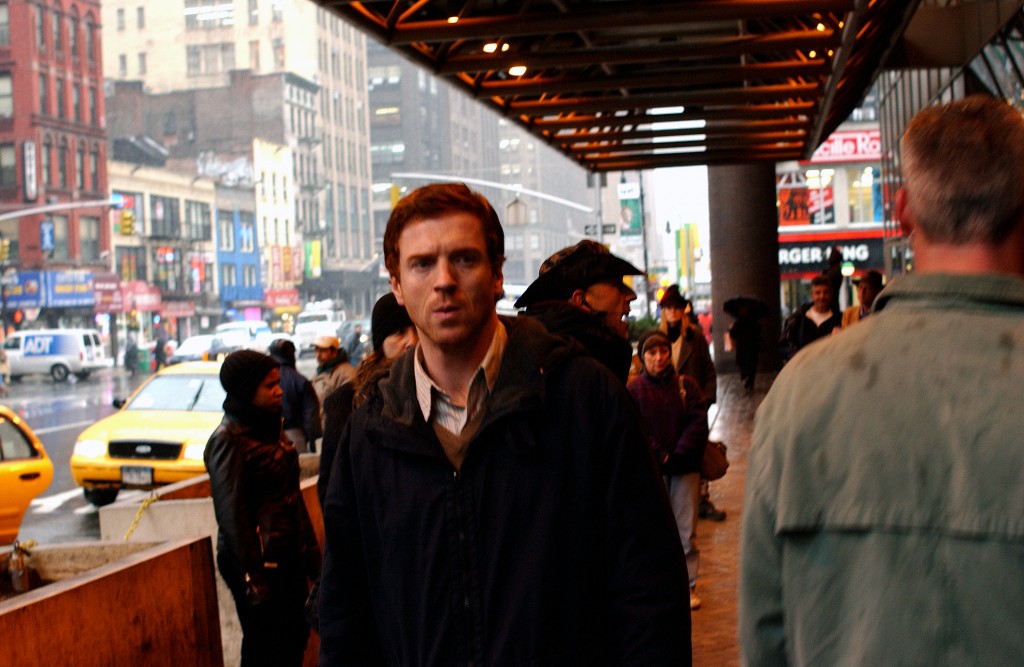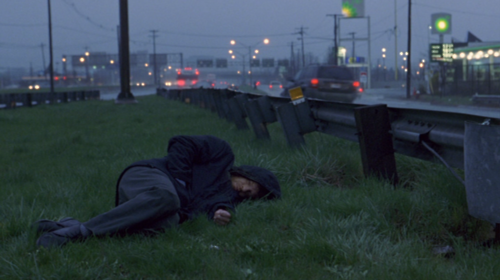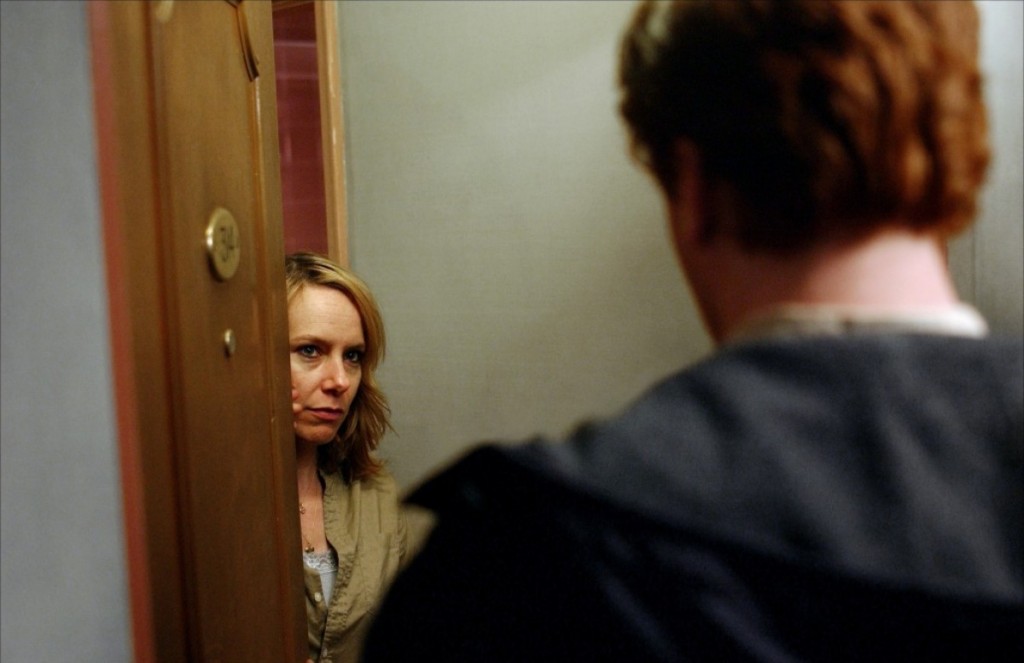
Directed by Lodge Kerrigan
Written by Lodge Kerrigan
USA, 2004
Given his latest role in Showtime’s acclaimed Homeland has pushed Damian Lewis firmly back into the limelight of public awareness after some mixed success post-big break in Band of Brothers, it seems a good time to revisit his finest work to date. The Eton alumni, who Steven Spielberg once pledged to make the first “ginger star” in Hollywood, has been involved in some duds and some diamonds in the rough in the past, but his defining performance comes in Lodge Kerrigan’s barely seen 2004 flick Keane.
Only Kerrigan’s third film, the nightmarishly realistic and documentary-like Keane is perfectly in keeping with the uncomfortably authentic melancholy of previous efforts Clean Shaven and Claire Dolan, a firmly rooted character study of an irredeemably flawed and damaged protagonist whose existence challenges our every emotion. William Keane (Lewis) is a New Yorker barely living life at all after the traumatic disappearance of his young daughter some years before. Driven into untreated despair, Keane now stalks the streets of the big apple in a fruitless quest to find his child, hassling passers by with a photo of his darling and surviving off meager disability welfare checks.
Days spent sleeping in cheap motels and motorway embankments on a diet of vodka and beer while displaying severe symptoms of schizophrenia change when he meets single mother Lynn (Amy Ryan), who leads a similarly nomadic lifestyle with her own daughter Kira (Abigail Breslin) following a messy divorce. Keane befriends the pair, and is unexpectedly entrusted with looking after the girl when Lynn goes off in search of new opportunities. Although this gives Keane a new lease on life, it also gives room for his mental instability to put more than just himself at risk as his warped mind tries to make sense of his horrible circumstances.
I’ve already talked about Lewis’s work here, and the desire to come back to Keane and put appreciation into words once more is due to the fact that this barely heard of independent film boasts one of the most extraordinary performances of the 00’s. It seems that Kerrigan is keenly aware of this fact, using the film’s loose plotting as a framework to display Lewis’ warts and all study of an utterly destroyed man who now fits the profile of the crazy man we all encounter at some stage of the streets of major cities, babbling incomprehensibly and showing barely controlled rage and indignation at something we cannot understand.
There’s no non-diagetic music used in the film, and the cinematography and editing is strictly workmanlike, creating the sense that we are simply following the main character around and getting an uncomfortably vivid and intimate glimpse at his day to day toil. But don’t mistake this effort for impersonal shock cinema, Keane is a very human story and the protagonist is not defined by his madness. Lewis’ affectionate portrayal is better described as that of a fractured soul, a once healthy man lost in despair and guilt. It is gut wrenching to witness him attacking a man out of the insane belief the stranger kidnapped his child, or to see him scream at patrons of a bowling alley in a paranoid tangent.
By the same token, the segments featuring Lynn and Kira are heartwarming without ever even touching on sentiment purely because we begin to see life return to Keane’s eyes, as his second shot of looking after a child gives him the balance and structure to let his caring and trustworthy demeanor emerge. While the prospect of romance between the two adults is only vaguely touched upon, the real soul comes from Keane briefly acting as a stand-in father to Kira, and it fits with the dynamic of the film that the young girl is the only character to display affection and humanity towards the tortured protagonist. The ambiguity of the film, suggestion that Keane is in fact just mentally ill and never had a daughter in the first place, is blown out of the water when you see how deeply this dynamic is instilled. He was a father, and his child was taken from him.
It also makes his inevitable descent back into darkness horribly tragic and painful to observe, for that is the full nature of our involvement, watching from behind a soundproof window as he fritters away a chance to return to normality in favor of indulging his dementia. Fortunately, and quite in quite uplifting manner, the sadness filled saga ends on a more hopeful note, as the man finally grabs hold of reality and keeps it firmly in his hands, choosing release over monstrous false hope. It’s the end of the worst journey imaginable in the only way such a thing could be resolved in something even approaching a happy ending.
As a father inspired to make a story about every parent’s worst nightmare, the amount of deeply personal investment is clear to see on Kerrigan’s part. Directing scenes with a voyeuristic eye without frills or gimmicks, he also pens a script without diatribe or speechifying, instead relying on raw emotion and trusting his actor to bring across the pain and horror of the piece. Cue Lewis, cue an amazingly rounded, sympathetic portrait and a truly haunting, unforgettable end product. There are times when you are watching Keane that you will feel embarrassment, shock and hysteria, and chances are you’ll never be comfortable. But, crucially, you will care.
Modern audiences may just see Brody or Dick Winters in recent releases, but in terms of undeniable acting dint Damian Lewis should really be best immortalized as William Keane.
Scott Patterson





